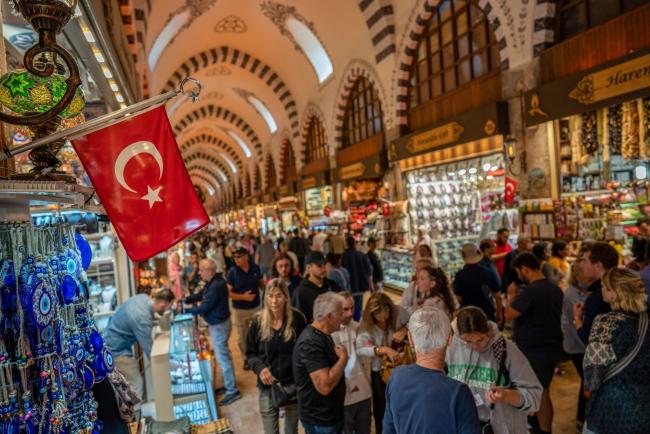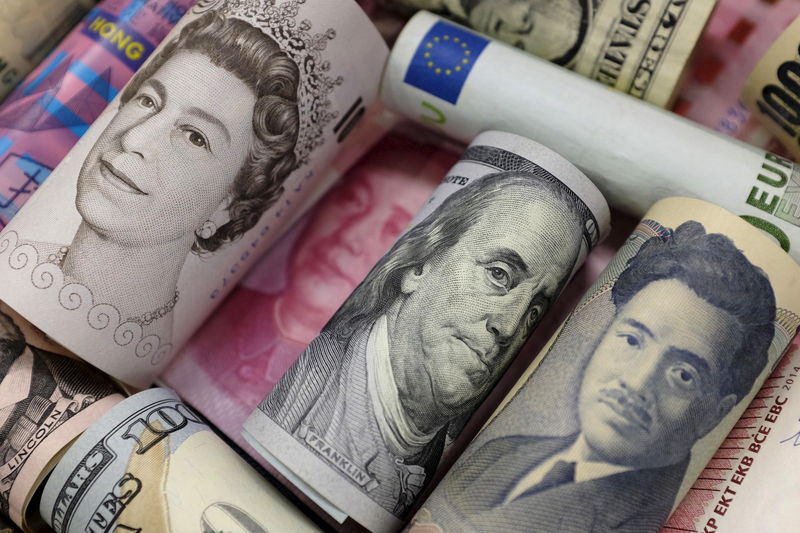(Bloomberg) -- Turkish annual inflation accelerated for the 17th month in a row in October, driven by a surge in food prices and high energy costs to its likely peak during President Recep Tayyip Erdogan’s two decades in power.
Consumer prices rose an annual 85.5% through last month, official data on Thursday showed, slightly lower than the median forecast in a Bloomberg survey. Monthly inflation was 3.54%, also slightly less than the estimate in a separate poll.
Annual inflation for food and non-alcoholic beverages, which make up about a quarter of the consumer basket, was 99.1% last month, up from 93.1% in September. Transportation prices rose 117.2% annually, the fastest annual surge among main inflation components.
Policy makers have blamed the inflation on high commodity costs, partly caused by Russia’s invasion of Ukraine, as well as other external factors. What’s less acknowledged is the impact of Erdogan’s unorthodox economic policies that reject raising interest rates to curb inflation.
So-called core inflation, which strips out volatile items like food and energy, was 70.5%, up from 68.1% in September.
After October, inflation will begin to slow down, enabled by the base effect, Istanbul-based Tera Investments’ chief economist Enver Erkan said ahead of data, in reference to price surges toward the end of last year. Other than the base effect, it’s hard to imagine that there is an indication of cooling prices, he said, adding that inflation remains at an elevated level and price increases are broad-based.
Factory gate prices were up 157.7% last month from a year earlier, driven higher by energy, electricity and gas.
Erdogan claims -- contrary to textbook economics -- that high borrowing costs will result in high inflation. He introduced late last year a so-called New Economy Model, prioritizing growth through increasing exports and investments, and creating new jobs.
Under pressure from the president who is seeking single-digit numbers by the end of this year, the central bank delivered consecutive rate cuts, last reducing the benchmark to 10.5% in October. The economic thinking has yet to show results.
Official inflation is currently 17 times higher than the central bank’s target. Meanwhile, in Istanbul, Turkey’s most populous and affluent city, annual retail inflation soared to 109% last month.
The easing cycle has also taken its toll on the lira, which is down by more than 28% against the dollar this year. The bank has signaled that it will most likely deliver another cut in its next rate-setting meeting this month.
In its latest quarterly inflation report presentation last week, the central bank raised its year-end inflation projection to 65.2%, up from 60.4% in July. And central bank Governor Sahap Kavcioglu said they had been “unsuccessful” in tackling inflation. However, the incumbent policies and further decisions will help check prices, he said.
In place of higher rates, the central bank has relied on a series of measures aimed at the banking sector to micromanage loan growth and propel the wider use of the lira, under a strategy dubbed “liraization.” Kavcioglu said last week that such macro-prudential measures would help normalize pricing behavior.
The monetary authority has also warned commercial lenders multiple times to refrain from diluting the regulations it has implemented, and said more rules could be on the horizon.
Turkey’s Central Bank Warns Lenders Against Higher Deposit Rates
Erdogan, seeking another presidential term in elections scheduled for next June, has tried to reassure voters that inflation would begin to fall in the first quarter of next year. He’s also promised the government would remedy the burden of higher living costs with significant minimum-wage raises, affordable housing and cheap loans.
“They are constantly bringing up inflation, we will talk about it after New Year’s,” Erdogan said in a televised interview on Wednesday evening, repeating that both the interest rate and inflation would be reduced.

